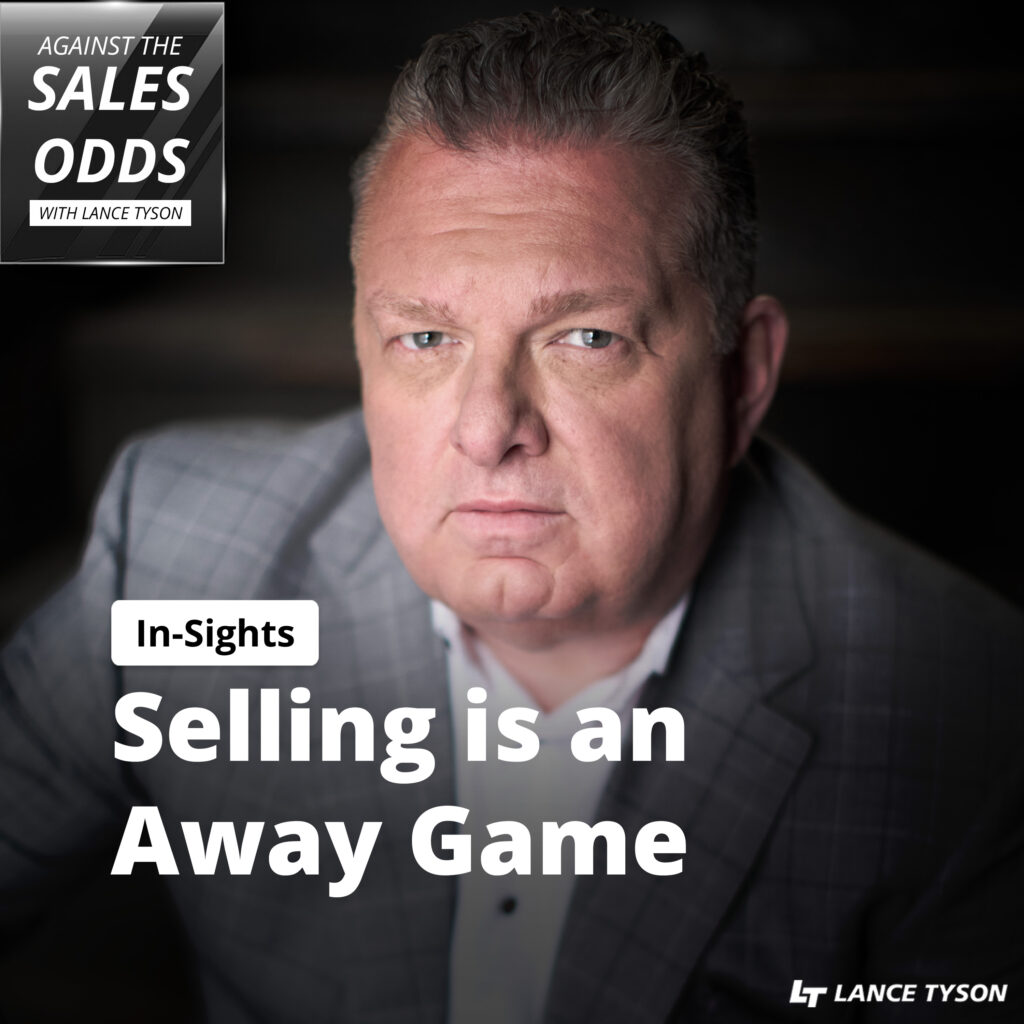I’ve spent the last 20+ years working with sales teams in the pro-sports industry. While each market is unique, each team faces its own challenges, and each league is unlike the others, there are four mistakes that are universal across all pro-sports sales.
Here are some thoughts and advice.
Take Scarface’s Advice
One of my favorite movies is Scarface. Not because of the gore or the drug dealing, but because of the entrepreneurial underlying message. All good American success stories have the main character possessing a lot of hustle and an entrepreneurial spirit.
In addition, this movie has given us some of the most endearing quotes. The first, although overused everywhere, is iconic: “Say hello to my little friend.”
The second quote is less known but the sentiment behind it is critical for sales people in the sports business. Tony Montana coaches his associates on how to be successful in the narcotics business by advising “Don’t get high on your own supply.”
Take Scarface’s Advice – Sell, Don’t Convert
I do a lot of training for pro sports sales teams. When I walk onto the sales floor, I often see sales associates donning the team logos and wearing the colors. In a recent session, I was coaching a group of NFL sales people on making cold calls. One rep did a fantastic job navigating the gatekeeper and getting the decision maker on the phone.
Then, the sales rep slammed on the brakes by spewing out this “killer” opening phrase: “Hey this is so-and-so from the NFL team”.
Even with this terrible opening the prospect didn’t hang up. Instead, he replied, “I don’t like football.” The sales rep then asked, “Why?”
It took everything I had not to grab the phone and hang it up. Instead, I let the conversation continue.
The rep was trying to convert the prospect into a fan. As a sales rep, your job is not to create converts. When you are selling either premium seats or tickets, your job is to get that decision maker to consider a hospitality option versus any other thing they could invest in.
An MLS executive once asked me to give him feedback on his team. I listed several strengths but I resisted giving weaknesses. After he pressed me, I said, “Ok, I think your weakness is you hire all former soccer players.”
He defended with, “But that’s our strength!” I replied, “Your greatest strength is also your greatest weakness. Your people spend too much time on the phone defending soccer to non-soccer people and not enough time selling. That’s not their job. Their job is to get prospects to consider hospitality tickets as an event option versus doing anything else or nothing at all.”
Stop evangelizing and take Tony’s advice. “Don’t get high on your own supply.”
Don’t Be A Creeper
Have you ever talked to a prospect, either B2B or B2C, and they acted really interested at first, but then they rushed you off the phone and said ‘call me back’? You probably spent the next few days calling them back several times like an 8th grade boyfriend or girlfriend, with zero success. You tried different times of the day, every day or even several times a day. Then, you resorted to calling from different phone numbers and making fly-bys on social media. In some parts of the country you would be looked at as a stalker or creeper!
Here’s some advice – when you get someone on the phone, make a solid impression!
Ask a few questions at the start to get their attention. Ask them if they would be open to some ideas about entertainment for their family or business. If they act interested and say call me back, slow the offense down. Ask to pencil in a time next week to talk. Use an alternate choice close and press them how sincere their interest is.
Don’t Be To Precise
Pro sports tickets sales is not an exact science. Remember, you’re not selling stints to the Cleveland Clinic. You are not selling things that the prospect needs. You are asking people to spend their discretionary income. Here is the deal. Most of your prospects are looking for the best option or opportunity to fit their need.
I was on the east coast recently working with a storied NBA franchise. One of the sales people started explaining why he felt that making a specific suggestion was key to sales success. However, I have a different point of view. Buyers love options. I would not be happy if I pulled up to the gas station and I could only buy one grade of gas. I appreciate having the opportunity to select from 3 or 4 options. When we go to the App Store, there are often several options available to purchase an app and they all have the same eventual outcome.
Buyers like to weigh things out. Many times, sports sales people drive prospects to a secondary market because they don’t offer more options.
Show them a comparison! Do people want to be sold or do they want to buy? They want to buy. After you show a few options, then you make the suggestion. This is a great opportunity to close using a weighing close.
Always Talk Value
Building off the previous point, buyers can’t value what they can’t compare and contrast. One question I ask in my coaching sessions is, “Have you ever shopped at Men’s Warehouse?” Most of the time I get, “Yes, I’ve been there!” Then I ask, “Have you ever gone in to buy a sports coat and walked out with 3 shirts and a pair of pants in addition to the original purchase?”
We have all been there, but how does this happen?
When you go in, the sales rep has you look at a couple of jacket options in addition to letting you know about the latest hot deal, like buy one get one at 1/2 price. Then alongside the sports coats, they show you a shirt. A $60.00 shirt, compared to a $300 sport coat, is not a big expense. Even two shirts at that price wouldn’t be a big deal. The process they use to sell involves price and value objection. It makes you feel like you’re getting a good deal or at least good value. Creating comparisons allow people to see value. Remember, value is always perceived!
Sometimes objections are more about avoiding pitfalls, landmines, obstacles, involves thinking outside the box and not making the same mistake twice.
Remember, sales is an away game. It happens in the head of your prospect. Most objections are created by the way you package and present your offers. So get out of your head, get in the head of your prospect and see things from their point of view. You’ll be better positioned to close the deal.
Oh, and “Don’t get high on your own supply!”




